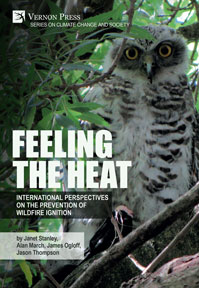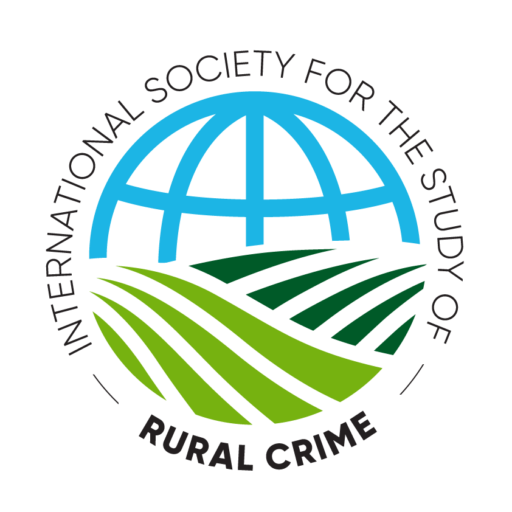New book – “Feeling the heat”
Post by Janet Stanley
One of the least discussed, yet most dangerous crime that occurs in rural areas, is illegal fire-lighting, which may result in a dangerous wildfire. Internationally, often well over 85 percent of wildfires are believed to be directly or indirectly started by human activity. Such activity may be due to a person accidently or recklessly lighting a fire without a permit, or a camper leaving their fire unattended. Alternatively, a person may maliciously light a fire. They may be hoping to hide a crime or claim insurance, or they may be responding emotionally to past trauma. Indirectly, a wildfire may be ignited by power lines or by a lightning strike, the latter increasing in frequency due to a failure to address climate change.
In the past, most wildfires were comparatively easy to extinguish. However, with the impact of climate change, fires are now becoming larger, more unpredictable, and dangerous. They are proving much harder to control and extinguish, and as a result have a greatly increased impact on people and the environment.
Thus, the task of preventing the ignition of wildfires has grown in importance. Yet, there are few fire prevention programs in place and those that are present, are rarely examined for effectiveness. Scant research funds have been allocated to the prevention agenda, along with little interest in this topic in academic journals. Hence a book has been published on the topic.
 Stanley, J, March, A, Ogloff, J. & Thompson, J (2020) Feeling The Heat: International Perspectives on the Prevention of Wildfire Ignition, Vernon Press.
Stanley, J, March, A, Ogloff, J. & Thompson, J (2020) Feeling The Heat: International Perspectives on the Prevention of Wildfire Ignition, Vernon Press.
The book is available directly from Vernon Press. Contact Associate Professor Janet Stanley at Melbourne University for a discount code.
This interdisciplinary book reviews current international knowledge and presents new findings on political, spatial, psychological, socio-ecological and socio-economic risk factors. Feeling the Heat argues that if we are to reverse the increasing occurrence and severity of wilfires, all prevention approaches must be utilised, broadening from current heavy reliance on environmental modification.

